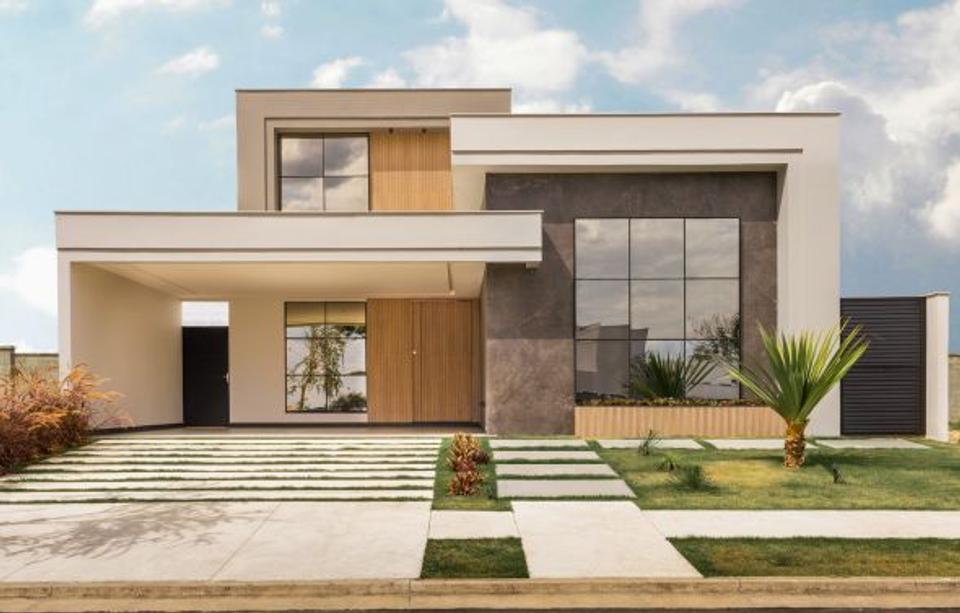Which Solutions Help with Remote Management of Vacation Properties: Complete Guide to Property Management Success

Key Takeaways:
Remote management lets hosts run vacation rental properties from anywhere, but it requires strong systems to replace on-site oversight and avoid missed tasks or guest issues.
The most effective setups rely on a centralized PMS that unifies calendars, guest communication, task assignments and automation into one hub.
Smart locks, automated check-in tools, digital guidebooks and AI messaging make it possible to deliver a smooth, reliable guest experience even across time zones.
Local teams stay organized through automated task creation, service provider hubs and real-time updates that reduce miscommunication and cleaning or maintenance gaps.
Growth becomes easier when hosts pair remote tools with dynamic pricing, direct booking sites, financial reporting and owner portals that scale operations without extra workload.
Managing vacation rental properties remotely is no longer just a backup plan, it’s the new norm for forward-thinking property managers and Airbnb hosts. Whether you’re running your business from a nearby city or a different continent, the ability to oversee operations without being physically on site opens up enormous flexibility and potential for growth.
But with that freedom comes a unique set of challenges.
How do you ensure guests can check in smoothly without needing to hand over physical keys? How do you coordinate cleanings and maintenance across different time zones? What systems keep your properties guest-ready, your teams informed and your business running smoothly all without constant oversight?
The answer lies in choosing the right tools, technology and systems to support your operations. Remote property management isn’t about being everywhere at once, it’s about creating a centralized, automated and intelligent framework that allows you to confidently manage multiple properties, deliver great guest experiences and scale your vacation rental business from anywhere.
In this complete guide, we’ll walk through which solutions help with remote management of vacation properties — used by leading vacation rental property managers — that make remote management not only possible, but profitable. From automation and smart locks to service provider coordination and financial reporting, you’ll discover how to run your business with ease, no matter where you are.
What Makes Remote Management So Challenging?
Managing a vacation rental property is already a juggling act. But managing it remotely across cities, states or even countries adds a whole new layer of complexity.
While remote property management gives hosts and property owners the freedom to scale and operate from anywhere, it also introduces several unique challenges:
1. Lack of on-site presence
When you can’t physically be at the property, even small tasks like replacing batteries in a smart lock or verifying a clean require coordination and trust. Without a strong system in place, you’re forced to rely on texts, calls or last-minute fixes, which increases the risk of missed details.
2. Communication bottlenecks
Trying to manage cleaning teams, maintenance staff or co-hosts through scattered messages across different platforms can lead to miscommunication, duplicated efforts or worse, missed turnovers and unhappy guests.
3. Maintaining guest satisfaction
Remote managers often struggle to maintain the same level of responsiveness and service as on-site hosts. Timely guest communication, check-in instructions and solving issues quickly are harder when you’re in a different location or time zone.
4. Juggling properties in different locations
Whether you manage two properties or twenty, distance multiplies complexity. Managing vacation rental properties across different cities or states means different service providers, regulations and local dynamics, all of which need to be monitored and optimized.
The good news?
These challenges aren’t barriers, they’re signals that you need the right systems and smart technology in place. In the next sections, we’ll break down the core areas every remote property manager should master and the tools that make it not just possible, but easy.

The 4 Pillars of Remote Vacation Rental Management
To run a successful vacation rental business remotely, technology alone isn’t enough. What you really need is a framework a way to think strategically about how your operations function when you're not physically present.
Based on insights from experienced hosts and property managers, remote operations succeed when four key areas are addressed consistently and cohesively:
1. Centralized operations
At the heart of every remote setup is a reliable property management system (PMS). It acts as your command center, consolidating calendars, guest messages, bookings and task assignments into one place. Without centralization, chaos quickly follows.
2. Seamless guest experience
From smart locks and automated check-in instructions to fast replies and digital guidebooks, your guest’s experience needs to feel smooth, personal and reliable even when you're managing from miles away.
3. On-the-ground team coordination
Remote doesn’t mean hands-off. Behind every well-run rental is a trusted team of cleaners, maintenance staff and inspectors who need clear communication and real-time schedules. Giving them the right tools means fewer mistakes and a better guest experience.
4. Business optimization and growth
Remote managers who scale successfully rely on smart tools like dynamic pricing, direct booking websites and financial reporting to grow efficiently. The goal isn't just to manage properties it’s to build a profitable, sustainable operation.
In the next sections, we’ll explore each of these pillars in depth, along with real-world examples and tools that support every stage of your remote property management journey.
Centralized Operations: Where It All Begins
At the core of every successful remote vacation rental business is a property management system (PMS) a centralized dashboard where all your operations come together. From bookings and calendars to guest messaging and task assignments, your PMS is what keeps everything running smoothly, even when you're managing properties across different locations.
Trying to run multiple short-term rentals without a central system leads to confusion, double bookings, missed messages and endless manual work. A modern PMS, especially one with an integrated channel manager, solves this by connecting the dots between your listings, your teams and your guests.
Key features of a centralized system
Channel manager
Syncs your listings, calendars, pricing and availability across platforms like Airbnb, Vrbo and Booking.com in real time. This prevents dreaded double bookings and ensures consistency, especially when managing multiple properties.
Unified inbox
No more switching between platforms or missing messages. A unified inbox pulls all your guest communication into one thread, accessible from your laptop or mobile device, so you can respond quickly and professionally from anywhere.
Automation tools
Free up hours of your time by automating routine tasks like:
Sending booking confirmations
Triggering check-in instructions
Reminding guests about house rules
Notifying cleaners after check-out
Requesting reviews after departure
Platforms like Hostaway allow you to create custom workflows using triggers (like “new booking”) and conditions (like “has pet”), so your automation feels personal, not robotic.
Common remote management challenges and the tools that solve them
Challenge | Remote management solution | Tool/feature |
Double bookings across platforms | Real-time calendar sync | Channel Manager |
Scattered guest messages | Unified communication in one place | Unified Inbox |
Missed cleanings or last-minute turnover rush | Task auto-assignment based on calendar events | Automated Task Generation |
Confusion among local teams | Real-time schedule visibility + alerts | Service Provider Hub |
Slow guest replies or missed questions | Instant automated responses | AI-Enabled Messaging / Templates |
Manually managing dozens of daily tasks | Workflow automation across operations | PMS Automation Tools |
Why it matters
When your operations are fragmented, you become the bottleneck, fielding every message, solving every issue and juggling all logistics. A centralized platform removes that burden. It empowers your business to scale by giving you and your team a shared, real-time system that stays organized, responsive and consistent.
As we’ll see in the next sections, this is just the foundation. But it’s the most important piece because without a strong central system, remote management falls apart.

Seamless Guest Experience from Anywhere
Managing a vacation rental remotely doesn’t mean compromising on hospitality. In fact, with the right systems in place, you can offer a more consistent, secure and responsive guest experience than if you were managing everything in person.
Modern guests expect convenience, clarity and fast communication. Delivering on those expectations without being physically on site comes down to smart automation, intuitive tools and proactive planning.
Key Solutions for remote hospitality
Smart locks and keyless entry
One of the most essential tools for remote hosts is a smart lock system. These devices eliminate the need for physical key exchanges and make the entire check-in process seamless for both you and your guests.
With the right PMS integration, you can:
Automatically generate temporary access codes for each booking
Set codes to activate at check-in and expire at check-out
Trigger codes to send alongside automated check-in instructions
Monitor access logs to verify when guests or cleaners enter the property
Platforms like August, Schlage and Yale are widely used and many leading property management systems (including Hostaway) integrate directly with them.
Digital guidebooks and house rules
Replace outdated printed manuals with sleek, mobile-friendly digital guidebooks that can be automatically sent to guests before arrival. These guidebooks can include:
House rules with clear instructions
Wi-Fi passwords
Appliance instructions
Local recommendations
Emergency contacts
This empowers guests to self-serve, reduces your message volume and improves their overall satisfaction.
AI-powered guest communication
Modern PMS platforms offer automated messaging tools, some even using AI to respond to common guest questions around the clock. This helps you maintain professional, responsive communication even if you’re in another time zone (or sleeping!).
Benefits include:
Instant replies to FAQs (e.g., “What’s the Wi-Fi password?”)
Improved response times
Lower guest stress = better reviews
Less manual work for you and your team
Platforms like Hostaway are already implementing AI into their unified inboxes, giving hosts supercharged responsiveness without lifting a finger.
Enhancing the stay: smart amenities
For high-touch remote hospitality, consider additional smart home features that enhance comfort and security:
Smart thermostats to keep the property energy-efficient and comfortable year-round
Smart security systems and security cameras (for exterior-only monitoring) to protect the property without invading guest privacy
Lighting control to create welcoming ambiances and save on utilities
These tools not only create a memorable guest experience but also help you stay in control from anywhere.
Why it matters
Guests don’t care whether you’re in the next room or the next country. They care about:
Fast, clear communication
Smooth, safe check-in
Clean, comfortable spaces
Feeling supported if something goes wrong
The good news? Remote tools can now deliver all of that, automatically. You don’t need to be on site to create an exceptional guest experience. You just need the right systems working behind the scenes.

On-the-Ground Team Coordination: Managing What You Can’t See
No matter how sophisticated your remote tech stack is, you still need boots on the ground like cleaners, inspectors, handymen and co-hosts, people who handle the physical realities of turnovers, repairs and guest issues.
But when you’re managing from a distance, your success depends on how well you can coordinate with these local teams without getting buried in messages, delays or uncertainty.
Key solutions for managing local teams remotely
Automated task management
Most modern PMS platforms now offer calendar-triggered task assignment, meaning you can automatically:
Create a cleaning task when a guest checks out
Assign it to the correct cleaner or team
Notify them immediately via SMS, email or app
Track when it’s marked as complete
No more “Did you get my message?” or missed turnovers. You just set the rules once and the system runs in the background.
Maintenance reporting & tracking
Maintenance issues often fall through the cracks without proper systems. With the right tools, local techs or inspectors can:
Report issues directly in their portal (with photos)
Trigger an alert or task for you to assign
Keep a record for future reference (great for owner reporting or inspections)
Service provider hubs
This is a game-changer for remote property managers. A Service Provider Hub gives your cleaners and service pros their own login with:
Access to their assigned property schedules
Live check-in/out updates
Ability to mark tasks as complete
Fewer back-and-forth messages with you
Think of it as giving them their own controlled, transparent workspace, one that saves everyone time and confusion.
Business Optimization & Growth: Scaling from Anywhere
One of the biggest misconceptions about remote management is that it’s just a workaround, a way to “make do” if you can’t be on site. But the reality is, with the right systems in place, remote managers often grow faster, scale more efficiently and earn more than their on-site counterparts.
The key? Leveraging technology to optimize not just your day-to-day operations, but also your revenue, owner relationships and long-term growth strategy.
Key tools that drive scalable growth
Direct booking websites
Relying exclusively on OTAs like Airbnb or Vrbo can eat into your profits. A good PMS will offer a customizable direct booking site that:
Integrates with your central calendar and pricing
Accepts secure payments via Stripe or other gateways
Showcases your brand not Airbnb’s
Direct bookings mean higher margins, more control and loyal repeat guests.
Dynamic pricing tools
Pricing isn’t one-size-fits-all. With demand constantly changing due to seasonality, local events and competitor listings, smart hosts use dynamic pricing tools to optimize revenue per night.
Many PMS platforms (like Hostaway) now offer built-in or integrated tools that:
Adjust pricing daily based on market data
Offer minimum night rules, orphan gap filling and last-minute discounts
Maximize revenue without constant manual updates
Robust financial and operational reporting
To grow strategically, you need data, not just bookings. A strong PMS will offer flexible reports that help you:
Track occupancy and revenue trends
Generate owner statements for third-party clients
Monitor expenses, cleaning costs and profitability per property
Identify which listings are underperforming
These reports are especially valuable if you manage on behalf of property owners or plan to pitch new investors.
Owner portals for transparency and trust
If you're a manager working with individual owners or investors, an Owner Portal is essential for scaling relationships without increasing admin work.
These secure dashboards allow owners to:
View booking calendars in real time
Access monthly financial statements
Track performance without emailing you for updates
This builds trust, improves transparency and sets you apart as a professional operator.
Why it matters
Growth doesn’t happen by chance, it’s the result of systems that scale with you. By using the right tools for pricing, reporting, direct bookings and owner communications, you create a business that’s not just running but ready to grow.
Whether you're expanding into new markets, onboarding more properties or increasing your revenue per guest, a tech-enabled approach lets you do it all without burning out or losing control.
Choosing the Right Technology Partner
When it comes to remote property management, your success isn’t just about automation or convenience, it’s about trust, reliability and scalability. That’s why choosing the right technology is one of the most important decisions vacation rental managers can make.
But with so many options out there, how do you pick the platform that supports your goals, your team and your growth?
Here are the core features every short term rental business should look for when evaluating a property management software solution.
Built for managing vacation rentals remotely
Not all platforms are created equal. You need a system that understands the nuances of vacation rental management, including:
Short stays, fast turnovers
Coordination with a local team
Check-in instructions and guest communication
Managing multiple properties across different locations
Look for solutions that are specifically designed for the pace, complexity and flexibility of short-term rental operations.
Centralized property operations
A leading platform will act as a single source of truth for your entire business:
Sync all booking channels from one site
Automate guest communication
Assign tasks to cleaning or maintenance staff
Generate reports for property owners
Manage access and monitor team progress from one dashboard
This is what enables you to truly streamline operations and avoid relying on a patchwork of disconnected tools.
Mobile apps for real-time control
You won’t always be at a desk. Whether you're in another city, another country or handling a personal errand while guests arrive, you need a mobile app that gives you:
Instant visibility into your properties
The ability to grant access, assign tasks or answer messages on the go
Push notifications to receive alerts or stay ahead of guest needs
This keeps you agile while ensuring the guest experience doesn’t suffer.
Security, access control and team management
The right software doesn’t just automate it also helps you protect your business:
Use smart locks to avoid physical keys
Control who can access what and when
Enable your local team to work independently while maintaining oversight
Reduce risk with digital trails, automated logs and less reliance on memory or manual processes
Owner transparency, legal compliance and scalability
If you're managing properties for property owners, you need:
Dedicated owner portals with real-time performance and financial reports
Clear documentation like electronic signatures and monthly statements
A system that protects both your guests and your business from legal issues
Tools that support scaling into new markets
A platform like Hostaway offers all of these features while giving you the support team to help troubleshoot, train and grow.
Why it matters
With the right property management software, remote doesn’t mean risky. It means:
Running a guest-ready operation with confidence
Expanding into new regions without adding complexity
Serving more guests while keeping your standards high
Reclaiming your time without sacrificing guest satisfaction
That’s the difference between managing vacation rentals and building a remote-ready vacation rental business.

Running a Guest-Ready Operation from Anywhere
Managing vacation rentals remotely isn’t just possible, it’s now the standard for growing, efficient businesses. With the right technology, you can streamline property operations, coordinate with your local team and deliver great guest satisfaction all without being on site.
Today’s best property management software allows you to:
Grant access with smart locks and automated check-in instructions
Track maintenance issues and team tasks in real time
Maximize rental income with dynamic pricing and direct bookings
Stay on top of multiple properties across different locations
Whether you're a host or managing for property owners, remote tools help you stay informed, maintain quality control and build a guest-ready, short term rental business that runs smoothly year-round.
Frequently Asked Questions
1. Do I need a property manager if I use remote management software?
Not necessarily. Many short term rental hosts successfully self-manage using tools like smart locks, automated messaging and centralized dashboards. However, if you’re scaling quickly, managing in multiple time zones or want someone to handle local logistics, hiring a property manager or even a co-host can still add value.
2. How can I find and trust a reliable local team when I don’t live nearby?
Start by searching in local vacation rental Facebook groups, regional hosting networks or using vendor platforms like TurnoverBnB. Once hired, maintain accountability through checklists, automated task tracking and visual proof (like before/after cleaning photos uploaded to your PMS).
3. What happens if smart lock systems fail or the guest can’t enter?
Always have a backup plan: leave a secure, lockbox-coded physical key on site, provide a secondary access method (like a Wi-Fi-based smart lock + Bluetooth fallback) and include 24/7 emergency contact info in your digital guidebook or automated messages.
4. Can I manage vacation rental properties in another country remotely?
Yes, but you’ll need to consider local laws, taxes, language barriers and on-the-ground service providers. Using a PMS that supports multi-currency, multi-language and legal compliance (like collecting local tax info or issuing electronic signatures) can help smooth cross-border management.
5. How do I maintain quality control when I can't inspect properties myself?
Use regular digital checklists, automated task confirmations and require photos after cleanings or maintenance visits. Some property management software allows for custom task templates and alerts when assigned jobs are skipped or delayed, giving you oversight even when managing vacation homes remotely.
6. Is remote property management more cost-efficient than traditional models?
In many cases, yes. You reduce overhead by eliminating office space, working with leaner teams and relying on automation. While you’ll still need a solid support team, the long-term savings in time and operational costs can lead to higher margins, especially as you scale.
Ready to find out how Hostaway can transform your business?
